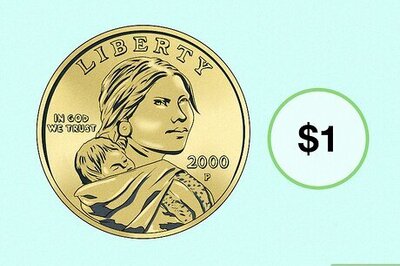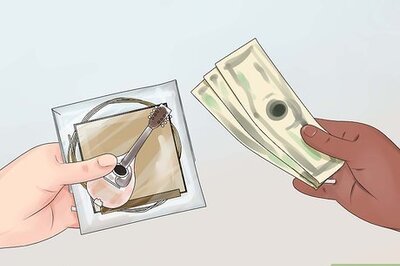
views
“My Apologies” Meaning
“My apologies” is an expression that means “I’m sorry.” The phrase, “My apologies” is an idiom that expresses your regret or remorse about something. It’s a polite way to apologize for an inconvenience, misunderstanding, or social blunder and is similar to saying “I beg your pardon” or “Please forgive me.” “My apologies, I’m running late and won’t be able to make it to dinner on time.” “My apologies, I didn’t see you there! Are you alright?” “My apologies” is a shortened version of the phrase “Please accept my apologies.”
“My apologies” can refer to multiple apologies you made. Sometimes, “My apologies” is simply a plural noun that refers to a time you made several apologies. For instance, you might say “My apologies” when talking about how you told your friend “I’m sorry” for losing a game and book you borrowed. “Thankfully, he accepted my apologies for losing his 2 favorite games.” “My sister told me that my apologies for spilling soup on her clothes weren’t enough. I have to buy her a new top and skirt, now!”
When and How to Use “My Apologies”
Say “My apologies” to apologize for mistakes in formal and casual contexts. “My apologies” is a polite phrase that’s appropriate to use with authority figures and colleagues, as well as family and friends. Simply use it in place of “I’m sorry” to apologize for a misunderstanding or error you made. “My apologies for sending the wrong file. The correct one is attached to this email.” “Please accept my apologies, I forgot you were vegetarian. If you give me a moment, I can find you something to eat.”
Say “My apologies” when being polite in social situations. If you accidentally bump into a stranger, interrupt a coworker, or have to excuse yourself from a conversation, say, “My apologies.” This polite phrase is the perfect way to apologize for minor accidents and social slipups. “My apologies, I didn’t mean to interrupt you. Please continue.” “Would you look at the time! My apologies, but I have to get home now.”
Use “My apologies” to decline an invitation. When you RSVP “No” to a formal party or have to leave an event early, give the host your regrets by saying “My apologies.” This is a polite way to express your remorse for not being able to attend a more formal get-together. “My apologies, I won’t be able to attend your retirement party. I’ll be out of town that weekend.” “My apologies, but I have to leave early. Please thank Monica for inviting me!”
“My Apology” Meaning
“My apology” refers to a singular expression of remorse that you made. “My apology” is not a phrase or expression, but a noun that refers to a time you said, “I’m sorry.” It describes a specific apology you made to someone and doesn’t actively express your sorrow or regret. “I made my apology to her yesterday. I hope she accepts it.” “I’m glad I apologized to Mr. Jones about drawing on the desk. He said my apology meant a lot to him.”
How to Use “My Apology”
Say “My apology” when talking about a previous apology you made. If you’re referencing a past apology you made to someone, say “My apology.” You might mention the apology you made when talking about whether someone accepted it or not. “I gave him my apology yesterday and he said he has to think about it. I hope he accepts it, I feel really bad.” “Camila helped me work on my apology to Rob. She’s great at wording things.”
Is it correct to say “My apologies” or “My apology?”
Both phrases are correct, but you say them in different contexts. “My apologies” and “My apology” are both polite terms that are acceptable to use in formal contexts. While the terms refer to making an apology, they have different meanings and are used in different contexts: “My apologies” is a phrase that means “I’m sorry.” “My apology” refers to a specific and singular apology you made.
Other Ways to Say “My Apologies”
“I’m sorry” and “Please forgive me” are other ways to apologize for mistakes. There are lots of phrases that have similar meanings to “My apologies.” If you want to express your sorrow or remorse about something, try saying: “I’m sorry.” “I apologize.” “Please forgive me.” “Please accept my apology.” “Sorry about that.” “My bad.” “My mistake.” “Oops!” or “Whoops!”
“I beg your pardon” and “Excuse me” also express politeness. If you’re saying “My apologies” a lot and want to change up your vocabulary, use these phrases that also express regret for making a minor social faux pas or accident: “I beg your pardon.” “Pardon me.” “Excuse me.” “Forgive me.”



















Comments
0 comment